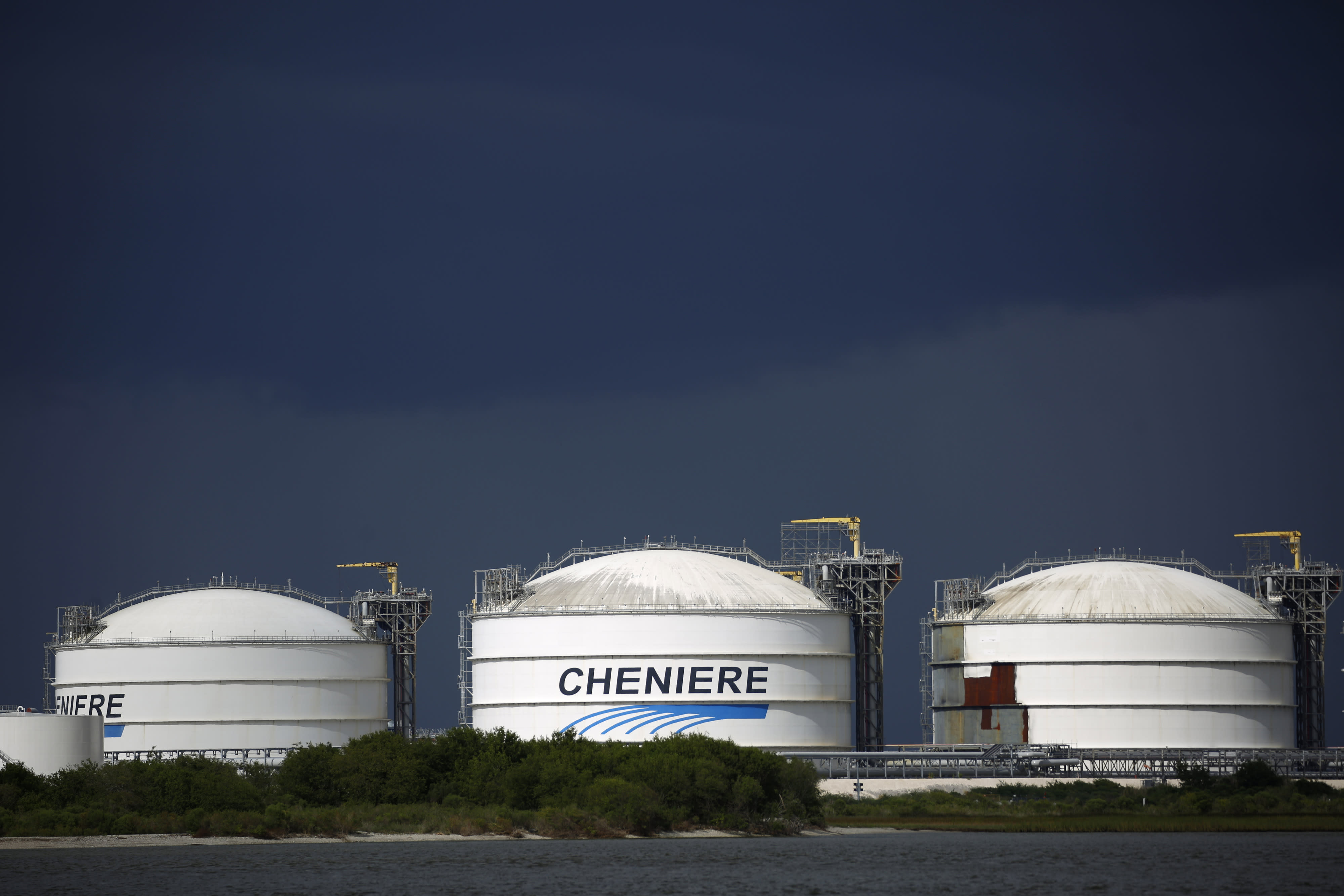Oil moves lower, but posts fourth straight positive month as demand rebounds

Storage tanks stand the Sabine Pass LNG Export Terminal ahead of Hurricane Laura in Sabine Pass, Texas, U.S., on Tuesday, Aug. 25, 2020.
Luke Sharrett | Bloomberg | Getty Images
Oil prices were little changed on Monday, with Brent slipping from a five-month high as global demand struggled to return to pre-COVID levels in a well supplied market.
Brent crude futures for November stood at $45.79 a barrel, down 2 cents. West Texas Intermediate crude settled 36 cents, or 0.8%, lower at $42.61 per barrel.
Brent is set to close out August with a fifth successive monthly price rise, while WTI is on track for a fourth monthly gain, having hit a five-month high of $43.78 a barrel on Aug. 26 when Hurricane Laura struck.
With the economic recovery from coronavirus lockdowns still muted, some analysts said the market could remain oversupplied with fuel.
“The issues over demand just aren’t showing signs of any real improvement,” said John Kilduff, partner at Again Capital in New York. “That’s what’s holding us back.”
Abu Dhabi National Oil Company told its customers on Monday it will reduce October supplies by 30%, up from a 5% cut in September, as directed by the United Arab Emirates government to meet its commitment on the recent OPEC+ agreement.
“With demand gradually recovering, this will allow the market to better absorb the inventory glut from earlier this year,” OCBC’s economist Howie Lee said.
Energy companies continued efforts to restore operations at U.S. Gulf Coast offshore platforms and refineries shut before the storm.
A weak U.S. dollar and a survey on Monday showing strength in China’s services sector supported oil prices even though fuel demand has struggled to recover amid the coronavirus pandemic and supplies remain ample, analysts say, cautioning of hurdles for crude going forward.
China’s crude imports in September are set to fall for the first time in five months as record volumes of crude are stored in and outside of the world’s largest importer, data from Refinitiv and Vortexa showed.




